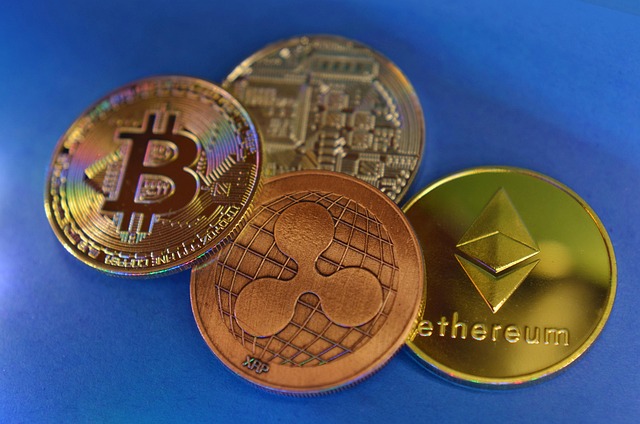Getting Started with Bitcoin
What is Bitcoin?
Bitcoin is a decentralized digital currency that enables individuals to make peer-to-peer transactions without the need for intermediaries such as banks or payment processors. It was created in 2009 by an anonymous person or group of people using the pseudonym Satoshi Nakamoto. Bitcoin operates on a technology called blockchain, which is a distributed ledger that records all transactions in a secure and transparent manner.
Unlike traditional currencies issued by governments, Bitcoin is not controlled by any central authority. Instead, it relies on a network of nodes to validate and secure transactions through a process called mining. This mining process involves solving complex mathematical puzzles to add new blocks of transactions to the blockchain. As a result, Bitcoin transactions are resistant to censorship and tampering, offering users a level of financial autonomy that is unmatched by traditional financial systems.
Understanding the Basics of Cryptocurrency
Cryptocurrency is a digital form of currency that operates independently of a central authority, such as a government or financial institution. It uses cryptography to secure and verify transactions, making it highly secure and immutable. Unlike traditional currencies, cryptocurrencies are decentralized and exist solely in the digital realm.
One of the key features of cryptocurrency is its blockchain technology, which serves as a decentralized public ledger of all transactions. Each transaction is recorded in a “block” and linked to the previous transactions, forming a chain. This transparent and tamper-proof system ensures the integrity of the currency and prevents double-spending.
The History of Bitcoin
Bitcoin was introduced in 2008 by an unknown person or group using the pseudonym Satoshi Nakamoto. The domain bitcoin.org was registered on August 18, 2008, and the white paper titled “Bitcoin: A Peer-to-Peer Electronic Cash System” was published on October 31, 2008. This white paper laid the foundation for the development of the first decentralized cryptocurrency.
In January 2009, the Bitcoin network was created when Nakamoto mined the first block of the chain, known as the genesis block. This marked the launch of the pioneering cryptocurrency, with Nakamoto mining a total of 50 bitcoins in the early days of the network. The history of Bitcoin is characterized by its innovative use of blockchain technology, which enables secure and transparent peer-to-peer transactions without the need for intermediaries.
How Does Bitcoin Work?
Bitcoin operates on a decentralized peer-to-peer network where transactions are verified by network nodes through cryptography. These transactions are then recorded on a public ledger called the blockchain. The blockchain serves as a transparent and secure record of all Bitcoin transactions and ensures that the system remains tamper-proof.
When a user initiates a Bitcoin transaction, it is broadcasted to the network for validation. The transaction details are encrypted and bundled into a block along with other transactions waiting to be verified. Miners, specialized nodes with powerful computing resources, compete to solve complex mathematical puzzles to validate the block. The first miner to solve the puzzle broadcasts the solution to the network for verification, earning a reward in Bitcoin for their efforts. This process, known as mining, not only validates transactions but also mint new Bitcoins into circulation.
Setting Up a Bitcoin Wallet
To setup a Bitcoin wallet, you need to choose a wallet that suits your needs, whether it’s a software wallet, hardware wallet, or an online wallet. Software wallets are installed on your computer or mobile device, hardware wallets are physical devices that store your Bitcoin offline, and online wallets are web-based services that you can access from anywhere. It’s important to research and select a reputable wallet provider to ensure the security of your funds. Once you have chosen a wallet, follow the instructions provided by the provider to create your wallet. This typically involves setting up a strong password and obtaining a unique wallet address for receiving Bitcoin.
After creating your Bitcoin wallet, it is essential to backup your wallet’s private key. This key is crucial for accessing and recovering your funds in case of any unforeseen circumstances. Store your private key securely in multiple locations, such as encrypted USB drives, paper wallets, or password managers. Make sure to never share your private key with anyone to maintain the security of your Bitcoin holdings. By following these steps, you can set up a Bitcoin wallet securely and ensure that your digital assets are protected.
Securing Your Bitcoin Wallet
To ensure the safety of your Bitcoin holdings, it is crucial to implement robust security measures for your digital wallet. Start by utilizing a strong and unique password that includes a combination of letters, numbers, and special characters. Avoid using easily guessable passwords or sharing them with anyone to prevent unauthorized access to your wallet. Additionally, consider enabling two-factor authentication (2FA) for an extra layer of security, requiring a secondary verification method to access your wallet.
Furthermore, regularly backup your Bitcoin wallet by storing a secure copy offline. This practice will safeguard your funds in case of a computer failure or security breach. Select a reputable and trustworthy wallet provider that implements stringent security protocols to protect your assets. Stay vigilant against phishing attacks and never disclose your private keys or sensitive information to unknown sources to maintain the integrity of your Bitcoin wallet.
Buying Your First Bitcoin
When it comes to purchasing your first Bitcoin, there are several avenues you can explore. One common method is through online cryptocurrency exchanges, where you can create an account, verify your identity, and then proceed to buy Bitcoin using traditional fiat currency. Additionally, there are Bitcoin ATMs located in various parts of the world, allowing you to exchange cash for Bitcoin easily and securely.
Before making your first Bitcoin purchase, it is crucial to research and select a reputable exchange or ATM provider. Look for platforms with a solid reputation, transparent fee structures, and robust security measures in place. It’s also recommended to start with a small investment to familiarize yourself with the process and minimize any potential risks. Remember, as with any investment, it’s essential to exercise caution and only invest what you can afford to lose.
Storing Your Bitcoin Safely
When it comes to storing your Bitcoin safely, security should be your utmost priority. As a decentralized digital currency, Bitcoin is prone to hacking and theft if proper precautions are not taken. One of the most secure ways to store your Bitcoin is by using a hardware wallet. These physical devices store your private keys offline, making it nearly impossible for hackers to access your funds remotely. It is highly recommended to invest in a reputable hardware wallet to safeguard your cryptocurrency holdings.
In addition to hardware wallets, consider diversifying your storage methods to minimize risk. Utilize secure desktop or mobile wallets for smaller amounts of Bitcoin that you may need for everyday transactions. However, remember to always backup your wallet’s private keys and enable two-factor authentication for an added layer of security. By spreading your Bitcoin holdings across multiple wallets, you can reduce the risk of losing all your funds in case of a security breach.
Sending and Receiving Bitcoin
When it comes to sending and receiving Bitcoin, the process is relatively straightforward. To send Bitcoin to someone, you will need their unique Bitcoin address. This address is a string of letters and numbers that act as a destination for the coins. You simply enter the recipient’s address and the amount of Bitcoin you wish to send, then confirm the transaction. Once the transaction is initiated, it will be added to the Bitcoin network’s public ledger known as the blockchain.
On the other hand, receiving Bitcoin is just as simple. When someone wants to send you Bitcoin, they will require your Bitcoin address. This address is specific to your digital wallet and serves as the destination for incoming transactions. Once the sender enters your address and initiates the transfer, the Bitcoin will be sent to your wallet. It’s important to note that Bitcoin transactions are irreversible, meaning once the coins are sent, they cannot be retrieved unless the recipient agrees to refund them.
Understanding Bitcoin Transactions
Bitcoin transactions are at the core of the cryptocurrency system, enabling users to send and receive funds securely and efficiently. Each transaction is recorded on the blockchain, a decentralized public ledger that ensures transparency and immutability. When a transaction is initiated, it is verified by network nodes through a process known as mining, where miners compete to solve complex mathematical puzzles to validate the transaction and add it to a block.
Once a transaction is confirmed and added to a block, it cannot be altered or reversed, making Bitcoin transactions irreversible. This feature provides security against fraud and ensures that funds are transferred safely between parties. Additionally, Bitcoin transactions are pseudonymous, meaning that while the transactions are recorded on the blockchain, the identities of the parties involved are encrypted to protect user privacy.
Bitcoin Mining Explained
Bitcoin mining is the process through which new bitcoins are created and added to the circulating supply. Miners use powerful computers to solve complex mathematical problems that verify transactions on the blockchain. In return for their computational efforts, miners are rewarded with newly minted bitcoins as well as transaction fees.
The mining process is essential for the security and integrity of the Bitcoin network. By solving these cryptographic puzzles, miners help confirm transactions, prevent double spending, and maintain the decentralized nature of the cryptocurrency. As the difficulty of mining increases and the supply of bitcoins becomes scarcer, mining has evolved into a competitive and specialized industry that requires sophisticated hardware and substantial energy consumption.
The Future of Bitcoin
Looking ahead, the future of Bitcoin appears to be filled with both promise and challenges. As the first and most well-known cryptocurrency, Bitcoin continues to be a hot topic for investors, enthusiasts, and regulators alike. Its decentralized nature and limited supply have cemented its position as a digital store of value, akin to digital gold. The potential for widespread adoption looms on the horizon, with more mainstream financial institutions showing interest in incorporating Bitcoin into their portfolios.
However, concerns about scalability, energy consumption, and regulatory scrutiny persist in the Bitcoin ecosystem. The debate surrounding the environmental impact of Bitcoin mining has gained traction in recent years, prompting discussions on potential solutions for a more sustainable future. Moreover, the regulatory landscape surrounding Bitcoin remains uncertain in many jurisdictions, with governments grappling to define their stance on this disruptive technology. Despite these challenges, the resilience and innovation within the Bitcoin community suggest that the future of Bitcoin is likely to be shaped by continued technological advancements and evolving regulatory frameworks.
Resources for Learning More about Bitcoin
For individuals looking to deepen their understanding of Bitcoin, there are numerous resources available that offer comprehensive insights into the world of cryptocurrency. Online platforms such as CoinDesk, CoinTelegraph, and CryptoSlate provide up-to-date news, analysis, and educational content on Bitcoin and other digital assets. These websites are valuable sources for staying informed about the latest developments in the rapidly evolving cryptocurrency space.
Moreover, for those seeking more in-depth knowledge, there are a plethora of books on Bitcoin written by industry experts and thought leaders. Titles such as “Mastering Bitcoin” by Andreas M. Antonopoulos, “The Bitcoin Standard” by Saifedean Ammous, and “Digital Gold” by Nathaniel Popper offer a deep dive into the history, technology, and potential future of Bitcoin. These books serve as invaluable resources for individuals wanting to grasp the complexities of the world’s most renowned cryptocurrency.







